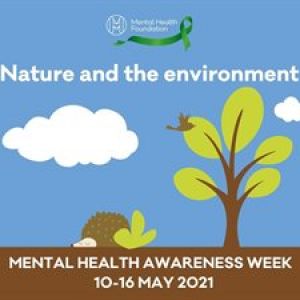Mental Health Awareness Week - OCD

With a link to Mental Health Awareness Week, one of our Sixth Form students has written a helpful article about OCD.
OCD – Obsessive Compulsive Disorder
Article by Lily-May Manton
“It’s not about being tidy, it’s about having no control over your negative thought. It’s about being afraid not doing things a certain way will cause harm.”
OVERVIEW
OCD is a common mental health condition where a person has obsessive thoughts and compulsive behaviours. This can affect men, women and child and symptoms occur early, often around puberty, but usually starts during early adulthood. It can typically be distressing and significantly interfere with your life, however treatment can keep it under control.
SYMPTOMS
• Frequent obsessive thoughts + compulsive behaviours.
• Obsession: unwanted/unpleasant thought, image or urge that repeatedly enters your mind, causing feelings of anxiety, disgust or unease.
• Compulsion: repetitive behaviour/ mental act that you feel you need to do temporarily relieve the unpleasant thoughts brought on by the obsessive thought.
• 10 other symptoms consist of; excessive cleanliness, preoccupation with security, preoccupation with money and hoarding, repetition, seeking validation, obsessive tidiness, out of control thoughts, depression, repetitive body movements and various eating disorders.
TREATMENT AND GETTING HELP
People suffering are often reluctant to seek help, due to being embarrassed and ashamed.
2 main ways of getting help are; referring yourself to a psychological therapies service or seeing a GP and getting them to refer you.
The main treatments are; psychological therapy eg. Cognitive behavioural therapy (CBT) and/or medicine, usually a type of anti-depressant, eg. Selective serotonin reuptake inhibitors (SSRIs) – CBT has a quicker effect rate the medication.
It is unlikely, someone suffering from OCD will get better without treatment and support.
CAUSES (NOT CLEAR)
• Family history: genes could determine the reason
• Differences in the brain: usually high activity in their brain or low levels of serotonin
• Life events: bullied, abused, neglected and sometimes started after an important life event such as childbirth or bereavement.
• Personality: neat, methodical people with personal standards are more likely to develop OCD and also anxious people with a strong sense of responsibility.
LIVING WITH OCD
• Disruption to your day to day life: repeating compulsions can take up a lot of time and people suffering tend to avoid triggering situations, obsessive thoughts can make it hard to concentrate, leaving the sufferer exhausted.
• Impact relationships: people tend to hide OCD from close individuals and doubt relationships making them hard to continue.
• Feeling of being ashamed, anxious and lonely, worrying of not being able to be treated.
SUBTYPES
• Contamination obsessions with cleaning compulsions
• Hoarding
• Symmetry obsessions with ordering compulsions
• Obsessions without visible compulsions
• Harm obsessions with checking compulsions
